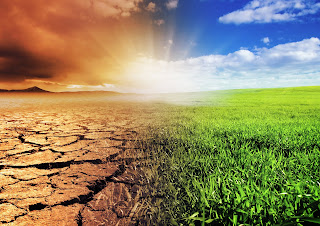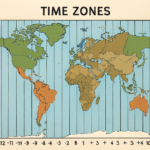
A troubled young man walking into the light
Climate change is a global phenomenon that is impacting the Earth’s natural systems and is caused by the increasing levels of greenhouse gases in the atmosphere. These gases trap heat and cause the planet to warm, leading to a range of consequences, including rising sea levels, extreme weather events, and changes in precipitation patterns.
One of the key ways to address climate change is to reduce our reliance on fossil fuels and transition to renewable energy sources. This can be done through a combination of measures, such as increasing energy efficiency, investing in renewable technologies, and implementing policies that support the transition to a low-carbon economy.
Another important aspect of addressing climate change is to adapt to the changes that are already happening. This can include building infrastructure that is resilient to extreme weather events, developing early warning systems for natural disasters, and supporting communities that are at risk of being impacted by climate change.
Overall, it is clear that climate change is a complex and multifaceted issue that requires a coordinated global response. By taking action now, we can reduce the impacts of climate change and create a more sustainable future for all.
Here are a few examples of how we can reduce our reliance on fossil fuels and transition to renewable energy sources:
Investing in renewable technologies, such as wind and solar power, which produce electricity without emitting greenhouse gases.
Increasing energy efficiency by using more efficient appliances and building materials, which can reduce the amount of energy needed to power our homes and businesses.
Implementing policies that support the transition to a low-carbon economy, such as carbon pricing or subsidies for renewable energy.
Here are a few examples of how we can adapt to the changes that are already happening as a result of climate change:
Building infrastructure that is resilient to extreme weather events, such as flood-proofing homes and businesses and constructing sea walls to protect coastal areas from sea level rise.
Developing early warning systems for natural disasters, such as heat waves or hurricanes, so that people can evacuate or take other protective measures.
Supporting communities that are at risk of being impacted by climate change, such as providing financial assistance to farmers who may be affected by changes in precipitation patterns.
In addition to these measures, there are many other ways that we can address climate change and create a more sustainable future. For example, we can:
Reduce our consumption of meat and dairy products, which are responsible for a significant portion of global greenhouse gas emissions.
Plant trees and other vegetation, which can absorb carbon dioxide from the atmosphere and help to mitigate the impacts of climate change.
Support organizations and initiatives that are working to address climate change and promote sustainability.
Addressing climate change will require a concerted effort from individuals, businesses, and governments around the world. By taking action now, we can create a more sustainable future for all and protect the Earth’s natural systems for generations to come.
Frequently Asked Questions about Climate Change
Here are some of the most common FAQs people search about climate change, answered in detail:
1. What is the difference between climate change and weather?
Weather refers to short-term atmospheric conditions like temperature, precipitation, humidity, wind, and cloud cover. Weather can change rapidly over hours or days. Climate, on the other hand, refers to long-term patterns in these average weather conditions typically measured over decades or longer. Climate change describes significant variations in these average weather patterns over several decades or longer.
For instance, a single hot day isn’t necessarily indicative of climate change. However, a sustained rise in average temperatures over several decades would be.
2. Is climate change real, and what’s causing it?
Yes, climate change is real and overwhelmingly caused by human activities. There is a strong scientific consensus (over 97% of actively publishing climate scientists) that human activities, primarily burning fossil fuels like coal, oil, and gas, are releasing greenhouse gases like carbon dioxide and methane into the atmosphere at unprecedented rates. These gases trap heat from the sun, causing the planet to warm.
3. What are the effects of climate change?
Climate change is already having a wide range of effects on our planet, including:
- Rising global temperatures
- More extreme weather events like heatwaves, droughts, floods, and wildfires
- Melting glaciers and polar ice caps
- Rising sea levels
- Ocean acidification
- Disruptions to plant and animal life
- Threats to food security and water resources
- Increased risks of mass migration and conflict
4. Is it too late to stop climate change?
While the Earth’s climate has already changed to some extent, it’s not too late to take action and mitigate the worst effects. The faster we reduce greenhouse gas emissions, the more we can limit warming and its consequences.
5. What can we do to address climate change?
There are many things we can do as individuals and collectively to address climate change. Here are a few examples:
- Reduce our reliance on fossil fuels and switch to renewable energy sources like solar, wind, and geothermal.
- Improve energy efficiency in our homes and businesses.
- Adopt more sustainable transportation options like walking, cycling, or public transport.
- Reduce our consumption of meat and dairy products, which have a large carbon footprint.
- Support policies that promote climate action and hold polluters accountable.
6. Where can I learn more about climate change?
There are many reputable sources of information on climate change. Here are a few suggestions:
- The Intergovernmental Panel on Climate Change (IPCC): https://www.ipcc.ch/
- The National Aeronautics and Space Administration (NASA): https://science.nasa.gov/climate-change/
- The Environmental Protection Agency (EPA): https://www.epa.gov/climate-change
- The Nature Conservancy: https://www.nature.org/en-us/what-we-do/our-priorities/tackle-climate-change/
By understanding climate change, its causes, and potential solutions, we can all play a role in creating a more sustainable future for our planet.







